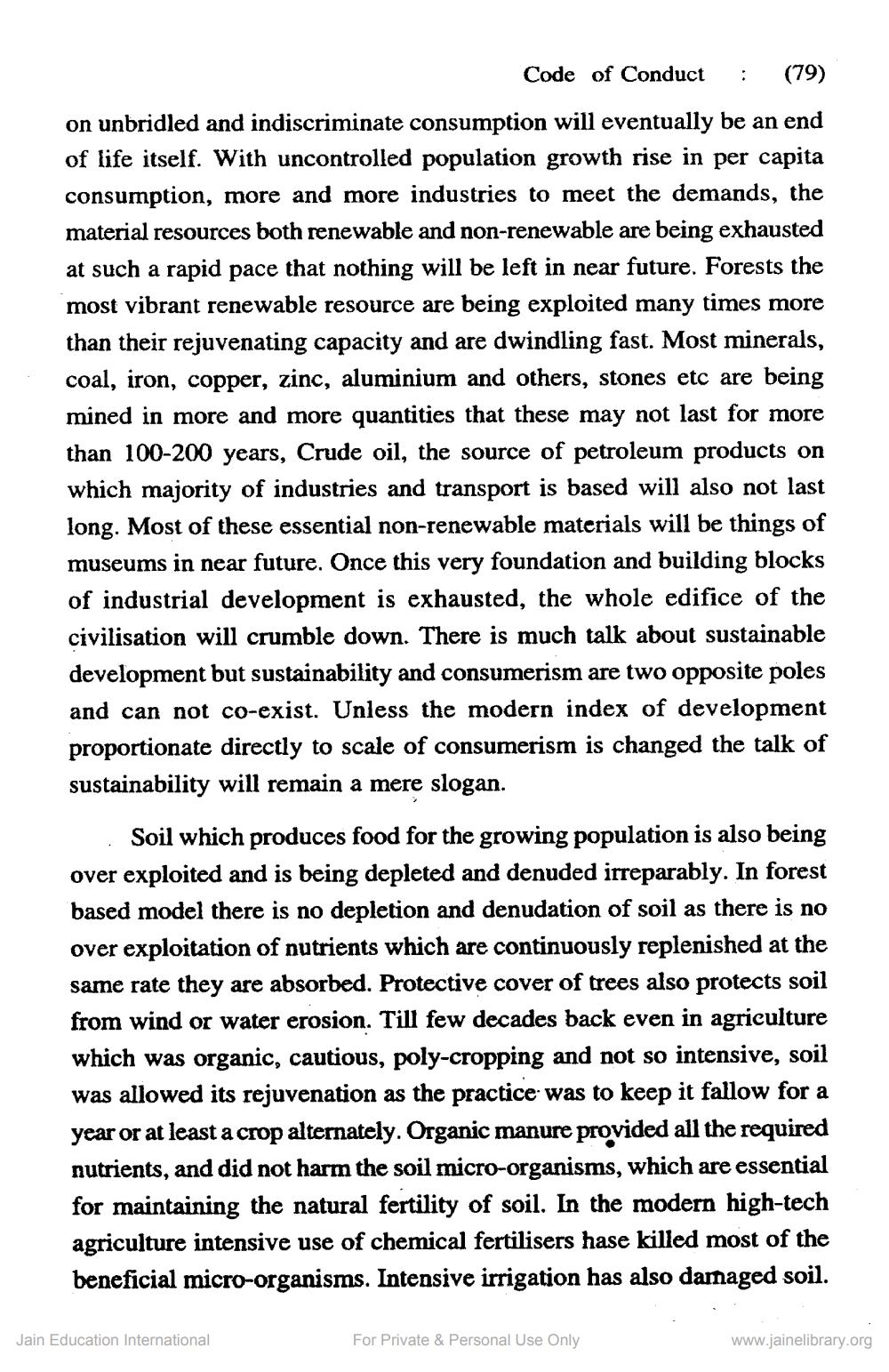________________
Code of Conduct : (79) on unbridled and indiscriminate consumption will eventually be an end of life itself. With uncontrolled population growth rise in per capita consumption, more and more industries to meet the demands, the material resources both renewable and non-renewable are being exhausted at such a rapid pace that nothing will be left in near future. Forests the most vibrant renewable resource are being exploited many times more than their rejuvenating capacity and are dwindling fast. Most minerals, coal, iron, copper, zinc, aluminium and others, stones etc are being mined in more and more quantities that these may not last for more than 100-200 years, Crude oil, the source of petroleum products on which majority of industries and transport is based will also not last long. Most of these essential non-renewable materials will be things of museums in near future. Once this very foundation and building blocks of industrial development is exhausted, the whole edifice of the civilisation will crumble down. There is much talk about sustainable development but sustainability and consumerism are two opposite poles and can not co-exist. Unless the modern index of development proportionate directly to scale of consumerism is changed the talk of sustainability will remain a mere slogan.
Soil which produces food for the growing population is also being over exploited and is being depleted and denuded irreparably. In forest based model there is no depletion and denudation of soil as there is no over exploitation of nutrients which are continuously replenished at the same rate they are absorbed. Protective cover of trees also protects soil from wind or water erosion. Till few decades back even in agriculture which was organic, cautious, poly-cropping and not so intensive, soil was allowed its rejuvenation as the practice was to keep it fallow for a year or at least a crop alternately. Organic manure provided all the required nutrients, and did not harm the soil micro-organisms, which are essential for maintaining the natural fertility of soil. In the modern high-tech agriculture intensive use of chemical fertilisers hase killed most of the beneficial micro-organisms. Intensive irrigation has also damaged soil.
Jain Education International
For Private & Personal Use Only
www.jainelibrary.org




